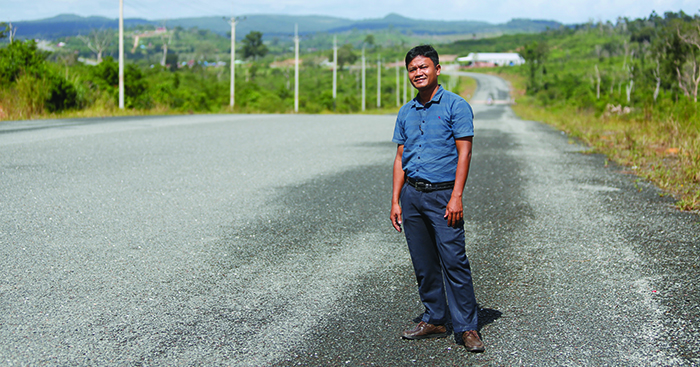Chan Thul Prak started his career as a journalist at a Chinese news agency before working for five years at the recently shuttered Cambodia Daily. In 2010, the Siem Reap native left the Daily for Reuters. He discusses his reasons for becoming a journalist and the recent crackdown on independent media in Cambodia

Why did you want to become a journalist?
When I was a teenager in the 1990s, a foreign-funded radio station was the only reliable source of information for me in the village. I listened to this radio [station] almost every night, and it opened my eyes to what was really happening in the country. I realised that I wanted to be part of this too: I wanted to become a journalist like the guys on the radio. I wanted to give people information that was accurate, not biased – and quick enough so that they could use it for the right reasons.
What do you enjoy about being a journalist?
I enjoy getting to travel for stories, meeting with important people and seeing real life.
What challenges have you faced in your career?
Finding data in Cambodia and accessing information is a bit difficult. Different institutions might have different numbers on the same matters. I have also been threatened a few times by people who didn’t like my reporting, though I never felt under serious threat.
How has the media industry changed since you first starting working as a journalist?
Ten years ago, things were slower. Things happen very quickly [now], and I’ve adapted to that. You can’t stay passive. You have to be busy and active all the time. The competition is fierce. You have to know as many sources as possible and keep those sources – they are all important.
How can Cambodian media survive the current crackdown on dissenting political voices?
I can only speak for what we do at Reuters, and that’s about sticking to the Trust Principles [a set of obligations created in 1941 that require all employees to act at all times with integrity, independence and freedom from bias]. Accuracy is essential. We give voices to everyone; we don’t take sides.
What has been the best piece of advice you’ve ever received from an editor?
That I should just keep writing. The more writing, the better you improve. One other thing is that when you are on a big and long story, be patient. People like to talk, just wait and listen a bit, and the information will come sooner or later.
What advice would you give to aspiring journalists in Cambodia?
I would advise them to continue to do what they are doing. Be positive: if you have already decided to do something, just be good at it. And never underestimate your competition. Take them seriously so that you can beat them. Never give them a chance, just keep working.
This article was published in the November edition of Southeast Asia Globe magazine. For full access, subscribe here.

